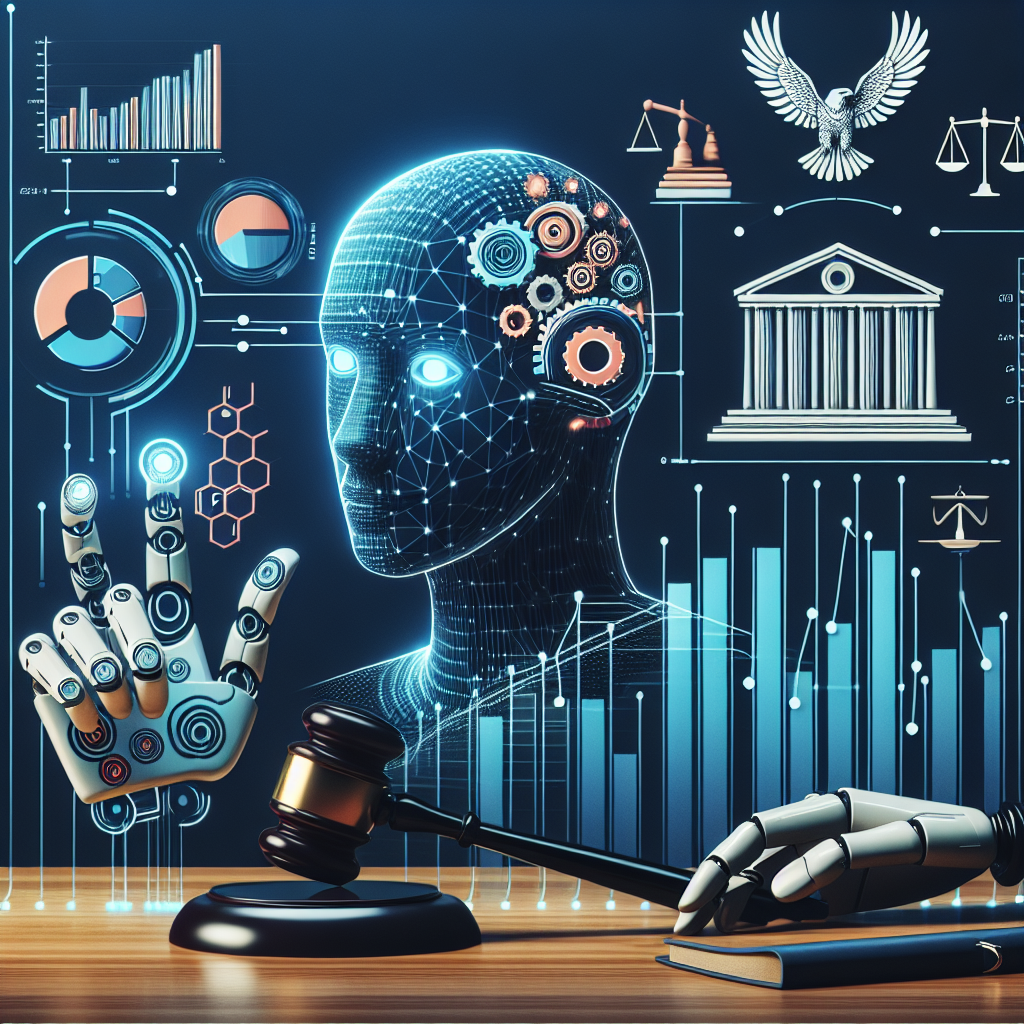In recent years, the use of artificial intelligence (AI) in government data management and analytics has been gaining traction. AI technologies have the potential to revolutionize how governments collect, analyze, and utilize data to make informed decisions and improve public services. From predicting traffic patterns to identifying fraudulent activities, AI has the capability to transform the way governments operate.
One area where AI is making a significant impact is in data management. Governments collect vast amounts of data from various sources, including citizen records, economic indicators, and environmental data. Managing this data efficiently and effectively is crucial for governments to make well-informed decisions. AI technologies, such as machine learning and natural language processing, can help governments organize, clean, and analyze data at a much faster pace than traditional methods.
For example, AI algorithms can automatically categorize and tag data, making it easier for government agencies to search and analyze information. This not only saves time and resources but also improves the accuracy of data analysis. AI can also help governments identify patterns and trends in data that may not be immediately apparent to human analysts. By using AI to uncover insights from data, governments can make better decisions and allocate resources more effectively.
Another area where AI is transforming government operations is in analytics. Governments use data analytics to track the performance of programs, assess the impact of policies, and identify areas for improvement. AI technologies can enhance the capabilities of traditional analytics tools by providing real-time insights, predictive analytics, and personalized recommendations.
For instance, AI-powered analytics platforms can analyze large datasets in real-time to detect anomalies or trends that may require immediate action. This can be particularly useful in areas such as public safety, where quick decision-making is crucial. AI can also help governments predict future outcomes based on historical data, allowing them to proactively address potential issues before they escalate.
Furthermore, AI can enable governments to personalize services and outreach to citizens based on their preferences and behaviors. By analyzing data on citizen interactions, governments can tailor services to meet individual needs and improve overall satisfaction. This not only enhances the citizen experience but also increases efficiency and effectiveness in service delivery.
Despite the numerous benefits of AI in government data management and analytics, there are also challenges and concerns that need to be addressed. One major concern is data privacy and security. Governments hold sensitive information about citizens, and there is a risk that AI technologies could be used to misuse or abuse this data. It is essential for governments to implement robust security measures and ethical guidelines to protect citizen data and ensure transparency in AI algorithms.
Another challenge is the potential for bias in AI algorithms. AI models are trained on historical data, which may contain biases that can perpetuate discrimination or inequities. Governments must be vigilant in monitoring and mitigating bias in AI systems to ensure fairness and equity in decision-making.
Additionally, there is a need for skilled personnel to implement and manage AI technologies in government agencies. Training staff on AI tools and techniques is essential to maximize the benefits of AI in data management and analytics. Governments should invest in workforce development programs to build capacity and expertise in AI technologies.
In conclusion, the use of AI in government data management and analytics has the potential to transform how governments operate and deliver services to citizens. By harnessing the power of AI technologies, governments can improve data management, enhance analytics capabilities, and personalize services to meet citizen needs. However, it is crucial for governments to address challenges such as data privacy, bias, and workforce development to ensure the responsible and effective use of AI in public sector operations.
FAQs:
Q: How can AI improve data management in government agencies?
A: AI technologies can automate data organization, cleaning, and analysis processes, making data management more efficient and accurate.
Q: What are the benefits of using AI in government analytics?
A: AI can provide real-time insights, predictive analytics, and personalized recommendations to help governments make informed decisions and improve service delivery.
Q: What challenges do governments face in implementing AI in data management?
A: Some challenges include data privacy and security concerns, bias in AI algorithms, and the need for skilled personnel to implement and manage AI technologies.
Q: How can governments address concerns about bias in AI algorithms?
A: Governments can monitor and mitigate bias in AI systems by implementing ethical guidelines, transparency measures, and diversity in data sources.
Q: What is the role of workforce development in AI implementation in government agencies?
A: Workforce development programs are essential to build capacity and expertise in AI technologies among government staff, enabling them to effectively leverage AI for data management and analytics.

